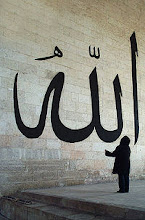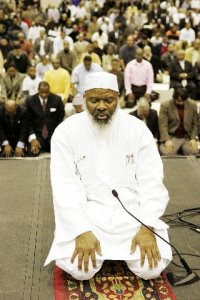 بسم الله الرحمن الرحيم
بسم الله الرحمن الرحيم
A factor that needs to be noted in all such issues, including questions about the prescribed punishments under Islamic law is that there are very few matters (if any) in our lives that are entirely beneficial and without some harm, or that have complete harm without some benefit.
Everything contains harms and benefits to a greater or lesser degree. Take khamr, or intoxicating substances for example. Even though the Prophet (saws) referred to it as the mother of evils, the Qur’an still recognises that it contains some benefit, but the harm is much greater than the benefit and this is sufficient cause for us to have to leave it completely alone. The fact that something has a small benefit does not justify it, because the harm that results is greater. Similarly something may have some harm, but the benefit is much greater, it cannot be prohibited because of that small degree of harm. If we always followed the rule avoiding that which has greater harm and procuring that which has more benefit, human life and societies would gravitate towards goodness. If we ignore this principle then harm will inevitably dominate our condition and destroy our societies.
It is the goal of the Islamic law (Sharia) that benefit dominates over harm. Of course there is always a possibility of dispute over what actually constitutes harm and benefit. Is it purely material, or does it include psychological and spiritual matters also. In fact we need to take all this into account.
This inevitably brings us back to an essential matter. Who and what determines that which actually constitutes harm and benefit? Human nature is so complex and the interaction and interplay of factors so vast that it is often beyond the capabilities of the limited human mind to factor all this in. This is why we believe we need Allah’s guidance from His perfect and complete knowledge. It is only Allah that has the knowledge and vision to comprehend the complexities of our individual and collective lives and thus to provide us with answers and instruction in how to best order it.
We only need to look at Western society to see examples of how miserably humans have failed to find answers to even relatively simple and essential matters, and how it has so completely left the mark!
One example that comes to mind is the daily function of how one goes about going to the toilet. Muslims are well aware that our religion instructed us 1400 years ago about how to clean ourselves with water after answering the call of nature; the ritual ablutions before the five daily prayers, and that cleanliness is half of faith. This was long before science had discovered about germs. This is why Muslim societies in the middle ages did not suffer from many of the diseases and plagues that decimated the West. In fact despite the understanding that modern science has brought, people in the West have failed by and large to translate this knowledge into daily manners and habits! There is still not water to wash ones privates in public lavatories (although some private houses have bidets). As for the men’s urinal where ones is supposed to urinate against a wall, causing urine to splash back over ones clothes and body, enough said about taking a shower in our own urine! Many people still do not wash their hands afterwards!
If the secular societies have failed to get such simple matters right, can it be expected that they will succeed in the matter of more complex ones that govern society?
We often hear complaints about the brutal punishments in Islam, like the removing of the hand for the thief. No doubt, to those of us living in the west such a punishment does seem harsh, but what is the alternative that so called “humane” and secular societies offer?
A man is caught stealing and is sent to prison. Let’s leave aside exactly how horrific prison itself is, and much it costs the hard working, honest citizen to pay for these prisons that do what exactly? There the thief meets other thieves, also kidnappers, murders, rapists…and they meet and talk about what? I’ve been so bad and won’t do it again? No, they share information. They teach each other how to be better thieves, murders, rapists and paedophiles and when the time comes for their release they are now equipped with knowledge they never had before. They are thinking that they will steal again, do it better next time and not get caught.
Is the criminal prevented from committing more crime? It seems not. 80% re-offend.
Is society protected from these criminals? It seems not. Crime increases.
One may criticize Islam, but what does the alternative offer?
Allah has laid out for us a society the very paradigms of which are radically different to those of the secular “consumer” societies. Whilst these advocate and propagate through constant advertisement that success and happiness is through procuring worldly goods Islam guides us to the path of spiritual happiness and contentment. Of course, it is not that Western society is blind to the need for morals and ethics, nor is an Islamic society blind to the need for material well being and prosperity, but where is the emphasis and what is the goal? Does it make a difference? Of course, it makes a vast difference. In societies where material possessions are seen as the means to happiness people will do what ever they can to acquire those material possessions, even if it requires stealing or killing. Perhaps that is why we feel so uncomfortable with harsh punishments because most of us ourselves in such societies empathise with this “need to acquire”. An Islamic society does not in general empathise with the thief at all. Excellence is in leading a simple life of contentment and obedience to God, so that in this context the crime is almost inexcusable, unless driven by starvation or some desperate need, which in any case can be reasons for the crime to be excuse and the punishment lifted.
These combined are perhaps the reasons why societies that follow the Islamic ethic and implement the Islamic law tend to be largely free and safe from such crimes. There are numerous witnesses, for example, of jewellery shops in Muslim countries being left open and unattended whilst the shop keepers go for prayers and come back to find all still in place.
Islamic law prevents the thief from stealing and protects society from the thief.
All of this, it must be noted, is in the context of the ethic under which the whole society operates and law is just, fair and effective.
The case of adultery.
All this applies also to the matter of stoning the adulterer and adulteress to death.
Islam has placed great emphasis on protecting and safeguarding the family. It is in fact the structure on which the well being of society rests.
There is also great emphasis laid on a public display of morality. It is a normal tendency in human societies to justify our actions in the context of how others behave and consider those actions. Islam goes some way to remove this tendency by insisting that deeds should be done to please God, not others. Still, when evil and sins begin to be practiced openly then people imagine that this act is not really that bad and detrimental, because after all, others are doing it. As a result the crime becomes more widespread and a vicious and rapid vortex of moral decline occurs with the ultimate disintegration of society. Islam forbids spying and seeking out of faults, but when sins are committed openly it contains three wrongs: a crime against the self (for that is what sins are, matters that harm the person who commits them) and affront to the law and thus the Law-Maker, and an affront to the good ordering of society. Such crimes thus need suitable and effective punishments that act as a sever warning to others. A public crime deserves a public punishment.
Adultery is punishable by death, and a slow and painful death by stoning. It is indicative of just how harmful this crime is to society. This is more so because in order for the crime to be proven the adulterers need seen performing the act by four reliable witnesses!
Let us also bear in mind that Muslims societies take every precaution to avoid the means that can lead to adultery. Public nudity is forbidden. In fact a strict dress code is observed. This is part of the wisdom behind the hijab. It is an act of social responsibility that helps towards a harmonious society. Also free mixing between sexes is avoided, men and women should not have physical contact and men and women should not even be alone together (unless they are husband and wife, or from close relatives who are permanently forbidden in marriage). Again in this context adultery is inexcusable, and justly punished with severity.
There is another direction from which the wisdom of such a punishment can be understood, and that is the death of two criminals can prevent the death and agony of many innocents. There is no doubt that adultery has caused many a jilted partner to kill not only the partner but in some instances the children as well. This is the harm that we can measure and see. It is more than likely that the psychological effects on the jilted partner, the children and their families is extensive, and can lead to behavioural problems that ultimately effect the well being of the whole society! The “harm” of the punishment for adultery is offset by the need of the “benefit” and protects the wider society. All of this also goes some way to help understand way acts of homosexuality are simlarily treated so harshly.
Ultimately one should not accept or reject Islam in general or in fact any specific part of it because it happens to agree or disagree with the norms of ones cultural heritage. Ethics and law and punishments are ultimately not things that we can easily take objective measurements of. A punishment that may seem overly harsh in one culture will look unnecessarily tame in another. It makes no sense therefore to make this the criterion for critique. Perhaps the closest we can come in this regard is to see: "Does it work or not?" Islam as a system of governance has an excellent track record in that regard. Not only has it a 1400 years track record, but it has and still is being successfully used by a multitude of peoples and cultures across the globe. Something I think few systems of governance can come close to matching.
 بسم الله الرحمن الرحيم
بسم الله الرحمن الرحيم

